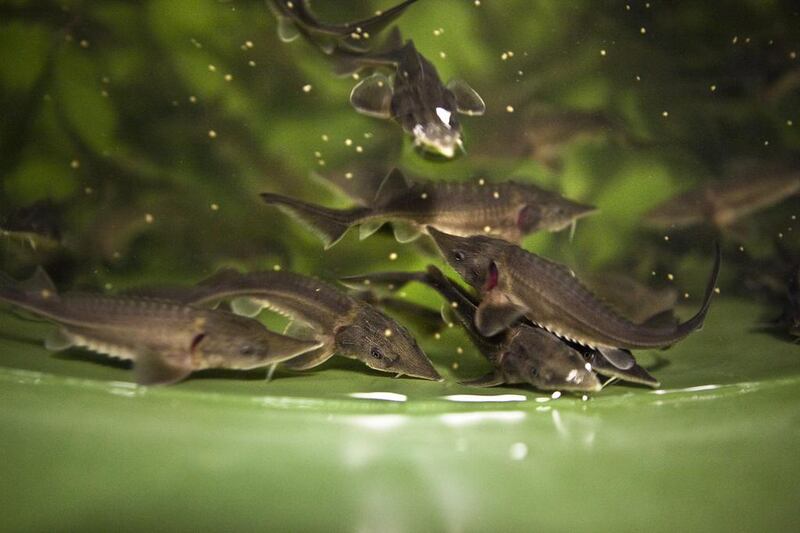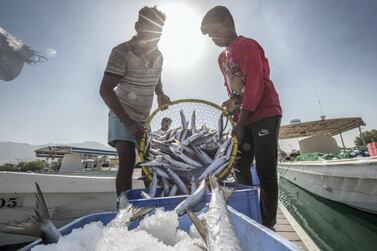A new aquaculture initiative set out by the Environment Agency Abu Dhabi aims to address severely depleted fish stocks.
The Sustainable Aquaculture Policy will help restore fish populations and boost economic growth in an industry that has doubled its production over the last two years, the agency announced on Sunday.
“The sea represents an integral pillar of the history and culture of our nation, providing a lifeline to sustenance, as well as social and economic opportunity,” said Dr Shaikha Al Dhaheri, the agency’s acting secretary general.
“The population of the UAE has risen exponentially to 9.3 million in 2017, placing a critical need on the sustainable and efficient management of our marine resources and fish stocks.”
Last week, Dr Al Dhaheri warned that fish species in the Gulf were under unprecedented pressure.
The new aquaculture policy is part of a broader strategy to reverse the rapid decline of the Gulf’s fish stocks.
The agency has introduced several new recreational and commercial fishing regulations this year, including a ban on spearfishing for hammour and a ban on domed wire gargooor traps.
The regulations followed an EAD study which found 85 per cent of Abu Dhabi’s sheri and hammour populations have been wiped out.
“As such, the aquaculture sector presents an opportunity to augment the supply of fish and seafood through the use of sustainable technologies to relieve pressures on declining wild fish populations and ensure the protection of healthy, productive and resilient marine ecosystems,” the agency said.
The policy has six initiatives to accelerate the aquaculture industry, including the identification of new farming methods and appropriate sites, the development of new legislation and guidelines and the promotion of scientific research in the sector and marketing to attract further investment. Their implementation will be overseen by the Abu Dhabi Agriculture and Food Safety Authority.
The agency has recently completed a study and impact analysis of three potential aquaculture sites on Delma Island to determine how much fish can be farmed in marine cages and the long-term impact of the farming on native aquaculture.
Abu Dhabi’s aquaculture sector produced 810 tonnes of seafood in 2018, valued at Dh18.6 million.
This included 305 tonnes of shrimp, 163 tones of tilapia and 120 tonnes of hamour (grouper) and sea bream, 60 tonnes of barramundi and 40 tonnes of sea bass, as well as non-native sturgeon species.
There are five licensed aquaculture operations in the emirate and production increased from 405 tonnes in 2016 to 648 tonnes in 2017.
"The Sustainable Aquaculture Policy is designed to relieve pressure on our fisheries by promoting a domestic strategy to promote a socially-responsible and economically-viable land and sea-based aquaculture sector, which can support the growing consumption patterns in Abu Dhabi and the UAE," said Dr Shaikha Al Dhaheri.
Aquaculture has grown quickly as natural fish stocks have become exhausted. But critics caution that widespread antibiotic use within the global industry can contaminate the marine ecosystem and that overcrowding in cages spreads disease and parasitic infections to wild fish.






